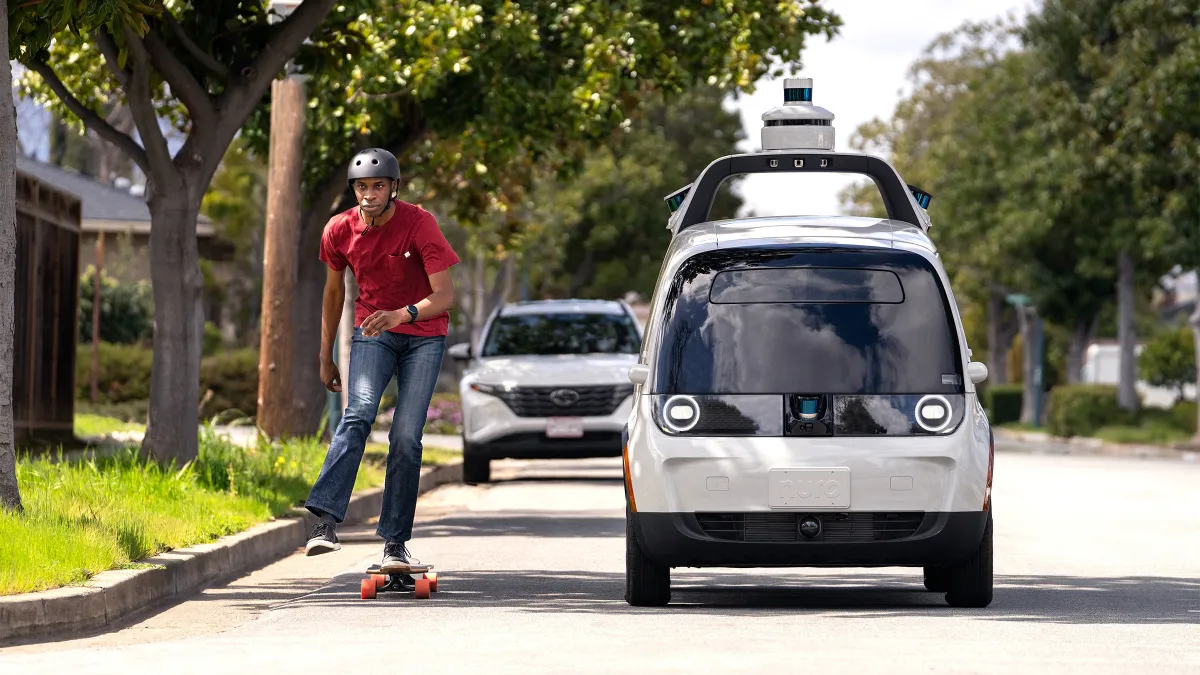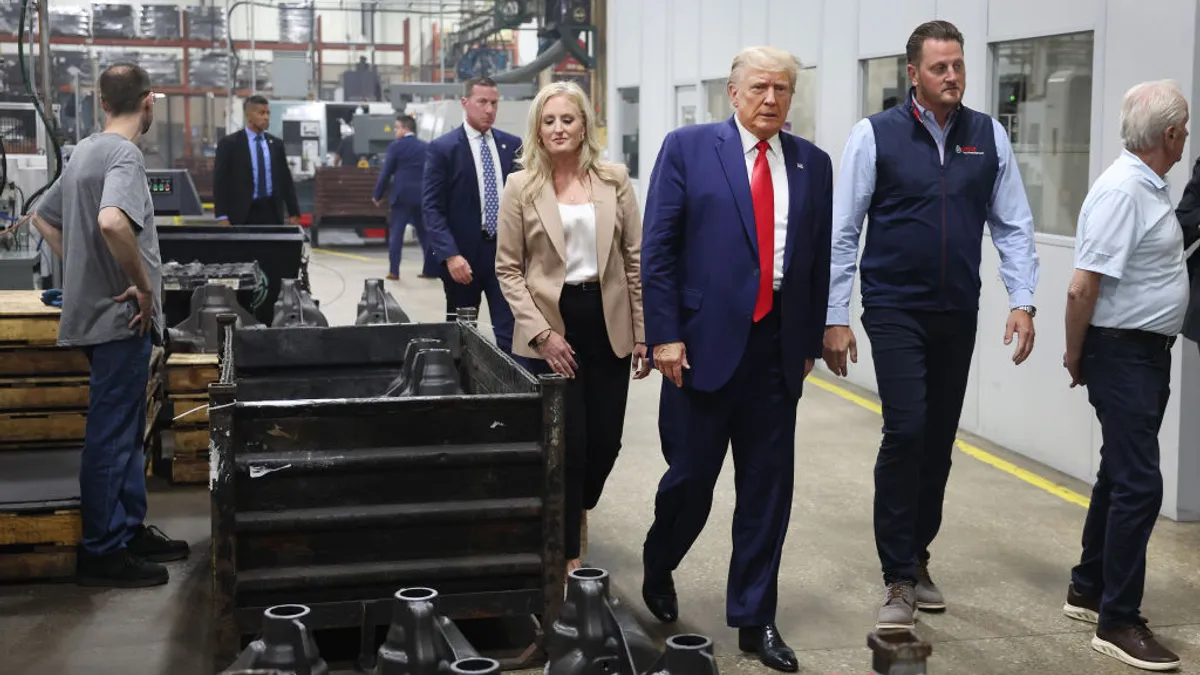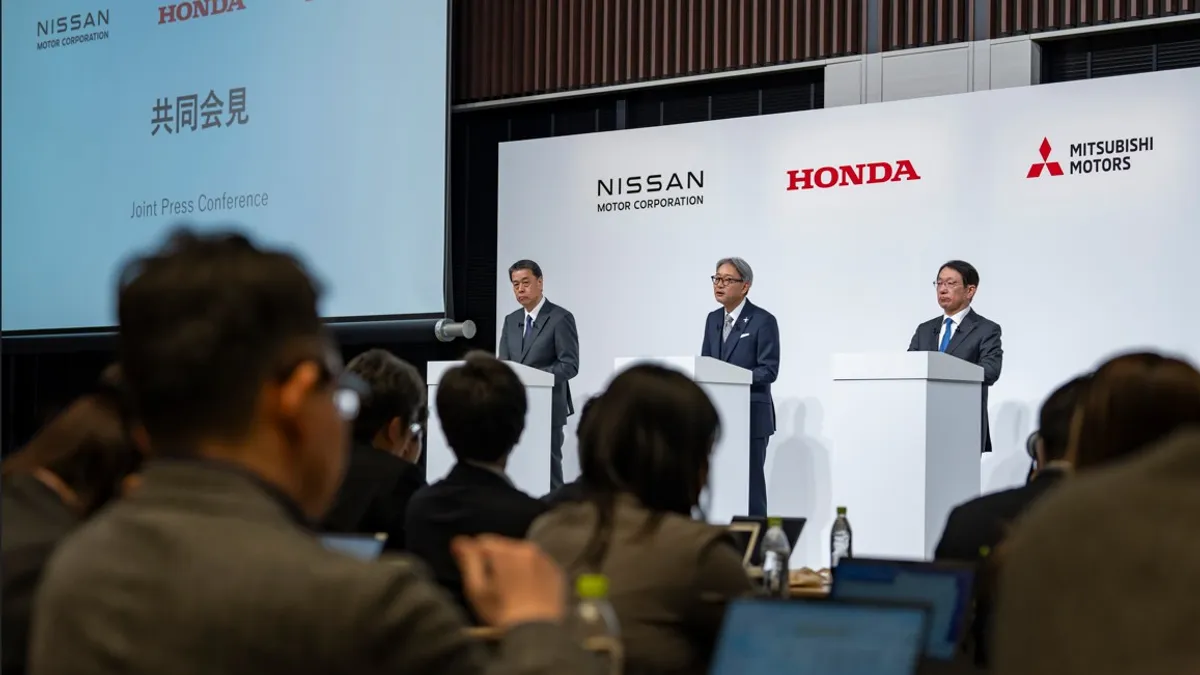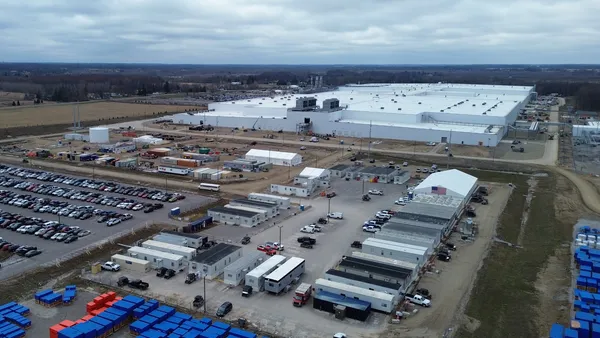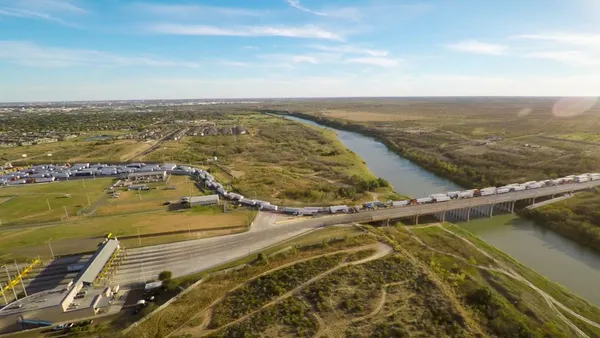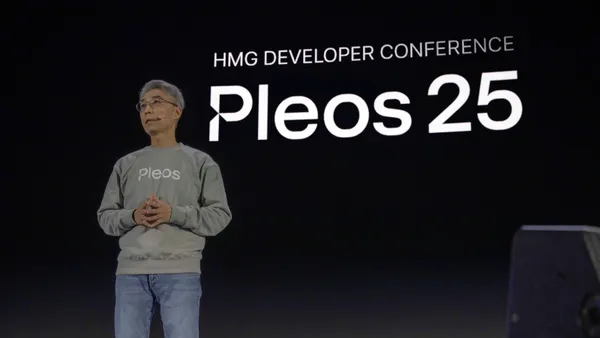Dive Brief:
- Autonomous driving technology developer Nuro plans to license its “Nuro Driver” autonomous driving platform to automotive OEMs and other mobility providers, per a Sept. 11 press release.
- The news expands Nuro’s business model as it aims to accelerate the adoption of autonomous technology across the transportation industry.
- Nuro said it will share additional details of its technical milestones and licensing partnerships in the upcoming months.
Dive Insight:
The licensing of the Nuro Driver will provide automotive OEMs and mobility providers access to a thoroughly tested, road-proven platform, which can help other companies accelerate their own autonomous vehicle development and deployment timelines, according to Nuro.
“Our new model will accelerate our customers’ autonomy roadmaps while significantly reducing overall development costs.” Nuro wrote in a blog post. “We believe this is the most efficient and sustainable way for the automotive and mobility industry to solve autonomy.”
The company has been testing L4 autonomous technology on public roads for the past four years. The Nuro Driver has amassed over 1 million miles of real-world testing without any at-fault accidents, according to the company’s website. It has been utilized for eight different vehicle platforms, from small AVs carrying packages to semi-trucks, as well as one confidential platform.
The Nuro Driver technology stack is powered by the Nvidia Drive Thor centralized processor, which features generative AI capabilities. It includes automotive-grade hardware and AI-powered software that supports up to Level 4 autonomous driving for both personally-owned vehicles, ride-hailing vehicles and commercial fleets. The Nuro Driver includes full redundancy across its autonomy stack to ensure safety and reliability, according to the press release.
Level 4 autonomous systems are classified by SAE International as those that can safely operate without human intervention. For comparison, Tesla’s Full Self-Driving and Autopilot features are classified as SAE Level 2 systems, which both require human supervision at all times when active.
"It's not a question of if, but when L4 autonomy will become widespread. We believe Nuro is positioned to be a major contributor to this autonomous future where people and goods mobility are free-flowing, representing a significant increase in the quality of life for everyone," said Nuro CEO Jiajun Zhu in the release.
Nuro was co-founded in 2016 by Zhu and Dave Ferguson. Both were former engineers from Google’s self-driving car program, which spun off into Waymo. Prior to the announcement of licensing its technology, the company has been largely focused on developing compact autonomous vehicles for last-mile delivery which were not designed to carry passengers.
“While our journey began with last-mile delivery, we’ve always envisioned a broader impact,” the company said in its blog post. “Now, our autonomous driving system, the Nuro Driver, is ready to transform personal transportation.”
Nuro also announced its new “Nuro AI Platform”, which includes scalable tools designed to support more efficient validation of the Nuro Driver for third party developers.



